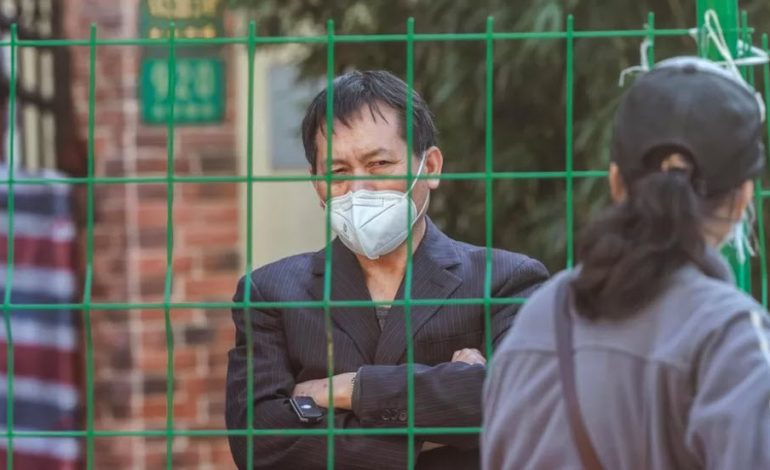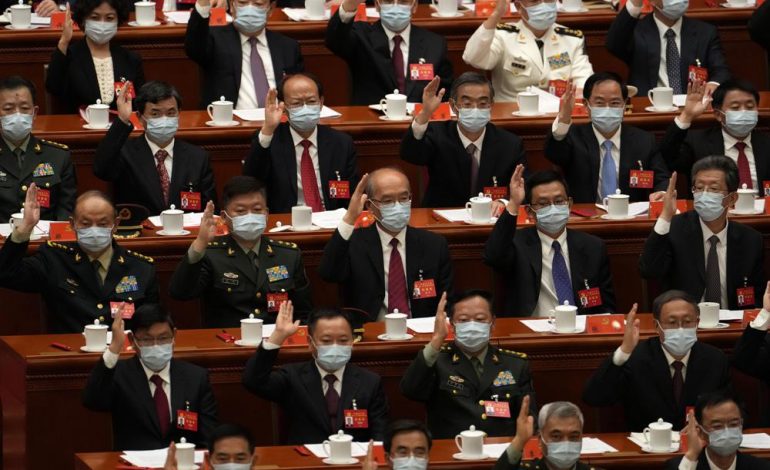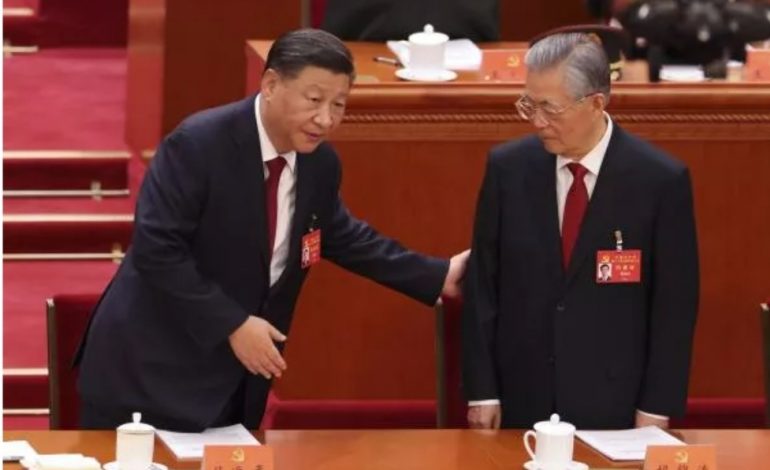
China Covid: The politics driving the hellish lockdowns
By BBC News
21 October 2022
The world has largely moved on from Covid – except for China, where towns and cities are still shut down overnight.
And that’s unlikely to change soon, judging by President Xi Jinping’s opening speech at the Communist Party Congress on Sunday. China – and even the world – was hoping for a hint of relaxation. But Mr Xi, who is set to be handed a historic third term to lead the Party, said that the government would not “waver” in its commitment to record zero cases.
Driven by Mr Xi’s approval, China’s lockdowns have been incessant, unpredictable and hellish by most accounts. They have sparked food shortages, crippled healthcare access, hit the economy hard and even spurred rare signs of protest.
But Beijing has clung to zero-Covid, which has come to define Mr Xi’s rule and the authoritarian bureaucracy at his disposal like almost no other policy.
The BBC found that since March, China has partially or fully locked down 152 prefecture-level cities, affecting a population of more than 280 million. But 114 of those have been locked down just since August, as the Party Congress approached.
Beijing is the only major city to have avoided a full lockdown so far. Residents half-jokingly observe that the capital has managed this by locking down the rest of the country when needed. However on Thursday some housing estates and shopping centres in Beijing were being locked down after a steep rise in cases.
BBC gathered data starting in March because that’s when China’s fourth phase of Covid control measures kicked off – comparing lockdowns across phases is harder because official language changes, skewing definitions and therefore, the corresponding data.
And China’s bureaucrats have certainly found inventive new ways to describe lockdowns. The measures had become so controversial and dreaded that confusing official-speak was one way to make them more palatable.
So they used phrases like “stasis management”, “at-home stillness” or to be clearer, “stillness throughout the whole region” or “stop all unnecessary movement”.
Then came “temporary societal control”, which authorities said was not a “lockdown” but reduced movement that somehow would not affect the “normal order of production and life”. And yet “the public was asked not to go out unless necessary”.
“Enclosed management” was another new phrase invented in the southern province of Guangdong. It means that the village, district or residential compound is enclosed, with checkpoints at entrances and exits. People and vehicles are allowed to enter and leave with passes. People who do not live or work in the enclosed area are not allowed to enter. But, residents were told, it’s not a lockdown.
When track-and-trace methods started to grate, eager officials came up with an alternative: “temporal and spatial overlapper”. The sci-fi-inspired phrase refers to someone whose location, tracked by their phone, has overlapped in time and space with someone else who is Covid-positive.
Rather than tell people not to visit their hometowns during this year’s Spring Festival, the governor in Dancheng County in central Henan province warned them that “those who come home with malicious intent will first be quarantined, then be detained”.
Now China is in what Beijing calls the “scientific and precise dynamic zero” phase, whose meaning no-one seems to be sure about. It’s meant to be one step up from the earlier “dynamic zero” policy.
Dynamic because the idea is that it’s not just about locking down entire cities and towns but about responding more dynamically depending on what the situation requires. But on the ground, it just looks and feels like a series of endless lockdowns.
The year began with the tourist hub of Xi’an, home to 13 million, being shut down for a month. Then in March, a lockdown was announced in Shanghai. It was meant to last less than a week, but its 25 million residents stayed home for two months. In September, residents in locked down Chengdu found themselves trapped in their apartments during an earthquake. Elsewhere, rescue workers were required to do a Covid test before they could save anyone.
That same month, hundreds of thousands of people in two cities in Shanxi faced a lockdown without a single case being reported: officials said it was to “contain the risk from outside”. A local party leader vowed to protect the area “to welcome the 20th Party Congress with excellent results”.


